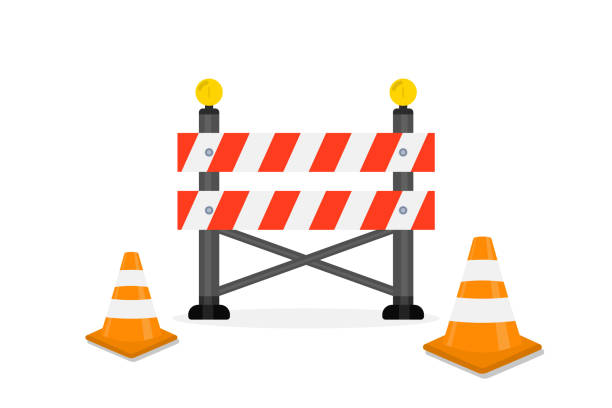In many industries, professionals must meet certain requirements to practice legally and maintain their skills. One of the key distinctions in this process is between Initial Registration and Certificate of Continuing Registration. These two types of registration serve different purposes and play crucial roles in ensuring that professionals remain qualified and compliant.
In this article, we will explore the differences between the two, explain their individual purposes, and discuss how understanding these distinctions can help you stay on top of your professional certifications.
What is Initial Registration?
Initial Registration is the first step in many professions, serving as the gateway for individuals to enter and practice in a regulated field. This type of registration confirms that a person meets the basic qualifications and standards required by the relevant authority to begin working.
Who Needs Initial Registration?
Typically, Initial Registration is required for professionals entering a field for the first time or switching careers. This is common in industries such as healthcare, law, engineering, and finance, where new professionals must demonstrate their education and qualifications to be considered eligible to work.
Process of Obtaining Initial Registration
To obtain Initial Registration, you generally need to submit an application, provide necessary documentation (like diplomas or certifications), and sometimes pass an exam. The approval process can take weeks or months depending on the industry and regulatory body.
Benefits of Initial Registration
- Professional Legitimacy: Proves you have met the basic standards to work in your field.
- Access to Opportunities: Opens doors for job placements and career advancement.
- Regulatory Compliance: Ensures you are following the legal requirements to practice your profession.
What is a Certificate of Continuing Registration?
Once you’ve completed Initial Registration, you’ll need a Certificate of Continuing Registration to maintain your status as a qualified professional. This certificate serves as proof that you are staying up-to-date with industry standards, education, and regulations, ensuring you remain compliant with the field’s requirements.
Who Needs a Certificate of Continuing Registration?
Professionals who wish to continue practicing and maintain their qualifications will need a Certificate of Continuing Registration. This is common in fields like healthcare, law, and engineering, where ongoing education and skill development are essential for compliance.
Process of Obtaining Certificate of Continuing Registration
Obtaining or renewing a Certificate of Continuing Registration usually involves completing continuing education courses or submitting proof of professional development activities. The renewal process often requires submitting documents that show proof of updated skills and training.
Benefits of Having a Certificate of Continuing Registration
- Compliance Assurance: Ensures that you are always compliant with the latest industry regulations.
- Professional Development: Demonstrates your commitment to staying current and advancing your expertise.
- Increased Credibility: Boosts your professional image and trustworthiness among clients and employers.
Key Differences Between Initial Registration and Certificate of Continuing Registration
While both types of registration are necessary for a career in regulated fields, there are key differences:
1. Purpose and Function
Initial Registration serves as the entry point into a profession, proving that you meet the minimum qualifications. On the other hand, the Certificate of Continuing Registration ensures that professionals stay compliant with evolving standards and regulations, reinforcing the importance of ongoing education and skill development.
2. Duration and Renewal Process
Initial Registration is typically a one-time process that grants you the right to start working in your field. In contrast, the Certificate of Continuing Registration is an ongoing requirement that must be renewed periodically. This usually involves meeting professional development and educational requirements to keep your certification valid.
3. Professional Development and Compliance
While Initial Registration proves you have the basic knowledge and skills, the Certificate of Continuing Registration ensures that you are consistently updating your knowledge and adhering to new industry standards. This ongoing process is vital in industries like healthcare and law, where regulations and best practices evolve quickly.
When Should You Apply for Continuing Registration?
Once you’ve completed your Initial Registration, you’ll need to keep track of when to apply for your Certificate of Continuing Registration. Typically, this application process begins as your initial registration nears its expiration date. Make sure to monitor your renewal timelines to ensure your credentials stay active without any interruptions.
Renewal Requirements
To keep your Certificate of Continuing Registration, professionals must engage in continuing education, attend workshops, or participate in other professional development activities. These activities not only help maintain your certification but also ensure you’re always up-to-date with changes in the field.
Real-World Examples of Industries Requiring Both Types of Registration
Healthcare
In the healthcare industry, professionals such as doctors, nurses, and medical technicians require both Initial Registration and the Certificate of Continuing Registration. Once they are registered initially, they must maintain their credentials by completing regular educational courses and complying with updated medical standards.
Legal and Financial Sectors
In the legal and financial sectors, lawyers, accountants, and financial advisors must hold both types of registration. Initial Registration is needed to start practicing, but to remain licensed, they must complete ongoing education and renew their Certificate of Continuing Registration regularly.
Engineering
Engineers also need both Initial Registration and a Certificate of Continuing Registration to practice. As regulations and technologies evolve, engineers must complete courses and certifications to keep their knowledge current and their registration active.
Conclusion
Understanding the differences between Initial Registration and the Certificate of Continuing Registration is crucial for any professional in a regulated field. While Initial Registration allows you to start your career, the Certificate of Continuing Registration ensures that you continue to meet industry standards and remain compliant with the latest practices.
By staying proactive with both types of registration, you can ensure your professional legitimacy, credibility, and ongoing success in your chosen field. Always stay informed about renewal timelines and continuing education requirements, and you’ll be able to maintain your qualifications and excel in your career.








